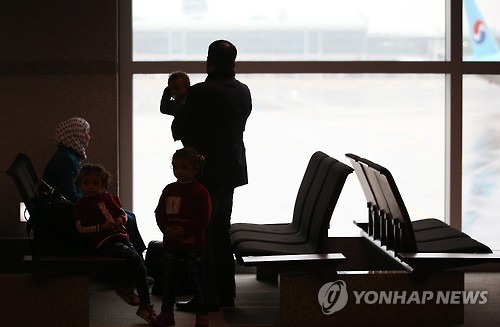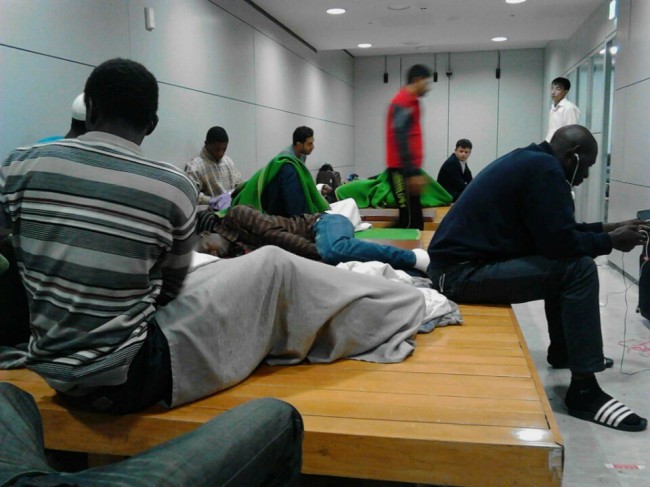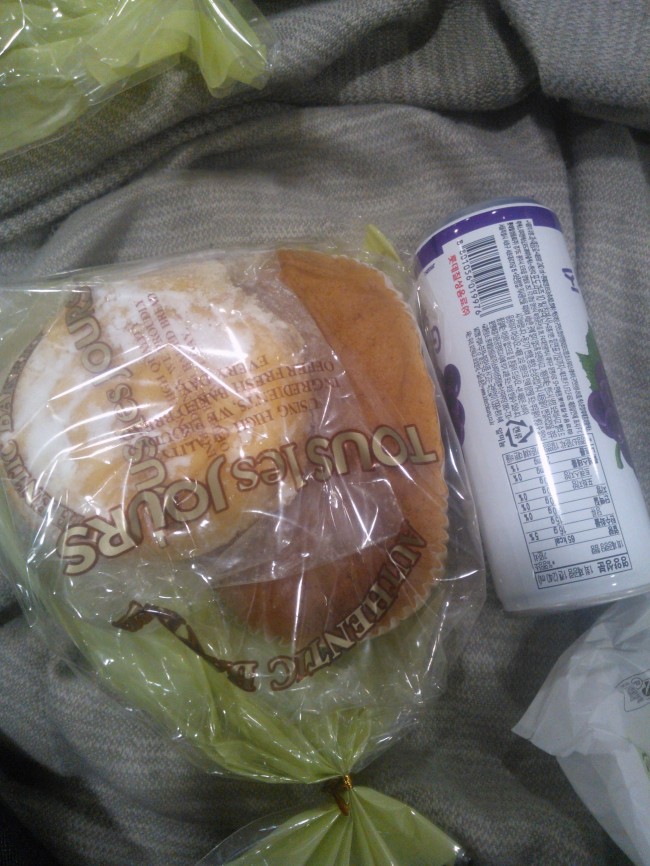With risks and challenges faced by refugees across the world having become one of the greatest global issues today, the status and conditions of asylum seekers in South Korea have also been highlighted. The Korea Herald is publishing a series of articles shedding light on refugees in Korea, their hardships, the systematic fallout, the country’s own history and ways to go forward. The following is the fifth installment. ― Ed.
Until asylum seeker Samuel (not his real name) spent several grueling months at the airport in South Korea, he was hopeful that the country would be at the forefront of protecting human rights and accept people like him with open arms.
But his hopes were quickly squashed when he was left to languish at the airport’s deportation room in February after being denied asylum and entry into the country at Incheon International Airport.
“I would have never come to Korea if I knew the county would treat asylum seekers like this. Does United Nations’ Secretary-General Ban Ki-moon really come from this country?” asked Samuel in his 20s.

He fled his homeland in West Africa due to religious persecution and described the conditions inside the deportation room located at one of the world’s best airports as “ironically worse than a prison cell.”
“In the deportation room, lights are always on. We sleep on the wooden tables. We are provided with a blanket and mattress, but airport security guards take them away at 6 a.m. every morning. It is impossible to sleep there,” said Samuel, who spent eight months at the facility located in the international transit zone.
“I was offered two small rolls of bread and soda for every meal. There was a toilet inside, but no toothpaste. My friend even used soap to brush his teeth,” he went on. “There was not enough heating or air-conditioning. I felt cold because I am from a warm country.”
“When I complained or asked questions, the security guards shouted and swore at me. I was told to go back to my country several times. They treated me so badly,” he said.
Hailed by the international community, the Seoul government enacted the Refugee Act in 2013 to guarantee humanitarian protection for asylum seekers.
But testimonies about the conditions at deportation and detention facilities appear to lay bare the long road ahead for the country to live up to global standards.
Under the new refugee law, all asylum seekers are allowed to apply for refugee status at the port of entry, unlike in the past when those arriving without a legitimate visa were simply repatriated to their countries of origin.
The immigration office is supposed to decide within seven days whether to refer asylum seekers to the official refugee application procedures. During this period, they are housed at state-run facilities where relatively proper bedding and meals are offered.

But Samuel was refused his right to claim refugee status in Korea and faced a deportation order, with the immigration office claiming that he had no “clear reason” to seek asylum.
Samuel was then transferred to the deportation room at the airport, where he filed a suit with the nation’s administrative court to fight the immigration office’s decision, with the help of refugee advocate organization NANCEN.
While waiting for the result, he had no choice but to live at the facility designed only for a short-term stay.
“If I didn’t have problems back home, I would have never stayed in the hell-like place for a single second. No one can stay that long under such appalling conditions.” Samuel said. “But I couldn’t go back. I would have been killed.”
An official from the Justice Ministry told The Korea Herald that the room is equipped with things needed for basic living, dismissing Samuel’s claims as “untrue.”
But it has refused to allow access to the media, citing “security reasons.”
The Justice Ministry also said that no one was forced to stay at the facility.
“We keep it open to anyone who wishes to come in and stay. They can leave the facility and return freely,” said a spokesperson for the ministry.
Yet, Kim Yeon-joo, a human rights lawyer and NANCEN activist representing Samuel, called the deportation room “a de facto detention center,” given the asylum seekers have nowhere else to stay.
Some of the long-term residents there reportedly fell ill due to sleep deprivation, poor quality of food and lack of sanitation, but they had no access to medicine.
“Without any access to legal counsel or the outside world, the lives of the asylum seekers at the deportation facility are in the hands of airport security guards,” the lawyer Kim said. “But their illnesses are ignored until they show visible symptoms like seizures.”
Such human rights violations shed light on the legal limbo in which asylum seekers are being kicked around by the government and airlines who seek to shift responsibility onto each other for the unexpected long-term residents.

Under the Convention on International Civil Aviation, airlines that flew the deportees without properly checking documents should cover the costs of looking after them until they return to their countries.
The Korean immigration law, meanwhile, stipulates that all deportees should be the responsibility of the Airport Operators Committee, a group of airlines managing and operating the deportation room.
An airport official told The Korea Herald on condition of anonymity that the company is baffled by the rising number of those staying at the deportation room for a long time and tries to return them to their countries as soon as possible.
“But the asylum seekers stuck in the deportation room should also be protected by the government within the legal framework,” Kim said. “It should be the government’s responsibility, not the companies, to take care of them.”
Samuel finally stepped onto Korean soil in October ― the government considers the security zone of the airport to have a different status ― after the court ruled in his favor, saying the immigration office had no authority to decide whether to begin the process of refugee application. It also added that the decision to deprive asylum seekers of the chance to claim asylum should only be made in exceptional cases.
Refugee rights activists here have accused the immigration office of abusing its authority to bar asylum seekers from pursuing their rights to apply and thus violating the international refugee law.
The international refugee law stipulates the principle of non-refoulement, advising the member nations not to deport any asylum seeker who fears persecution back home.
From January to June this year, only 38 percent of those seeking asylum at the port of entry were accepted into Korea and referred to the refugee determination procedures, according to data obtained by NANCEN.
Kim pointed out that the Justice Ministry has been quite defensive in implementing the refugee law out of concern that it might prompt a mass inflow of migrants.
“But once the government joined the international drive to take in refugees, it should help asylum seekers pursue their rights,” Kim said.
In its defense, the Justice Ministry has underscored the importance of distinguishing those who can pose a threat to the national security from “real” asylum seekers. It said potential terrorists could enter in the guise of asylum seekers.
“If we accept everyone into the country because they applied for asylum at the airport, we have no way to deny those who are not supposed to be in the country. So we are running the prescreening process to keep them out,” the ministry official said.
Refugee activists in unison voiced concerns for incoming asylum seekers, following the deadly terrorist attacks in Paris on Nov. 13 that led to the government vowing to tighten immigration controls.
“We think it could further lower the chances for asylum seekers at the airport to be referred to the application process,” Kim said.
A Kashmiri man, who wanted to be only identified as Musa, experienced similar human rights violations at the immigration detention center in Hwaseong, Gyeonggi Province.
Musa, a 33-year-old former politician fighting for independence of Kashmir, was handcuffed and transported to the detention center in late 2013 after being caught traveling to South Korea on a forged passport.
Campaigning for the independence of Kashmir ― a flashpoint between India and Pakistan for more than six decades ― he claims he had to buy a passport from a Pakistani broker to escape political persecution.
“I was not a criminal, but an asylum seeker. But I was locked in the detention center the whole time. In Korea, applying for asylum is a crime,” Musa told The Korea Herald.
Since the enforcement of the Refugee Act, asylum seekers can apply for refugee status at detention centers, too. While the application process is underway ― which takes up to three years ― asylum seekers are taken into custody at the detention center without knowing when they will be released.
“Prison would be better than the detention center. At least, criminals know how long they will stay there, but we just have to wait endlessly,” said Musa, who spent one year and seven months there.
“We cannot go outside, move around and exercise. We cannot use the Internet or read newspapers,” said the man, who was detained with 16 people in a small room with iron bars. “The only way to connect to the outside world is to use a pay phone inside the room.”
The detainees are taken outside the detention rooms only twice a week for 20 minutes each while immigration officers search their rooms. “But when I tried playing with a ball during the so-called exercise session, I was stopped,” Musa said.
“We wake up early in the morning and spend all day just sitting in the prison cell,” he went on. “Some detainees fall mentally ill and attempt suicide.”
A month after he was detained, he started to write a petition to the head of the detention center, asking for access to international news channels, the Internet and proper food.
He even went on a hunger strike on multiple occasions, for as long as 57 days. But whenever Musa stood up for his rights, he was isolated in a separate room.
“Without the right to access information and legal counsel, it is impossible to prepare myself to defend my case. Then, I become more likely to be rejected refugee status,” said Musa, who has been temporarily released from the detention center for health reasons.
One can be released for medical treatment but the process to prove the illness is gruesome and costly. Therefore, Musa’s case is extremely rare, according to sources.
The situation for Muslims could be even worse as they can only eat halal food processed according to Islamic law. A 30-something Bangladeshi detainee, who wanted to be identified as Amin and has been held for two months now, said that he now lives on kimchi (Korean cabbage dish), rice and water.
“I spend all day doing nothing but praying,” Amin told The Korea Herald. “I just want to get out of here, pack my things and go to another country to find shelter.”
Kim Jong-chul, a human rights lawyer for Advocate for Public Interest Law, addressed the need for the revised law to limit the length of stay of foreign detainees at the center.
Currently, there are no legal clauses stipulating how long detention centers can house foreigners.
“The detention center is to detain deportees only for a short term. It is not a place for people to stay for a long time. So life inside the center could be very distressful,” Kim, who began representing asylum seekers in 2007, told the Korea Herald.
“There should be legal guidelines to limit how long foreign detainees can stay at the detention facilities,” he said. “Also, the ministry should speed up the lengthy refugee-screening process for asylum seekers being detained.”
The Justice Ministry said, for its part, that it had its own difficulties in processing the growing number of refugee applications and foreign nationals trying to enter the country due to lack of staff members and budget.
“There are certain people who illegally reside in Korea, get caught by immigration officers and all of a sudden apply for refugee status when they face deportation,” said Kim Young-jun, the head of the immigration office, citing the possibility that asylum seekers are abusing the system to extend their stay in Korea.
“While the number of incoming and outgoing passengers has soared, the number of immigration officers dealing with border controls and refugee applications remains the same,” he added.
By Ock Hyun-ju (laeticia.ock@heraldcorp.com)
-
Articles by Ock Hyun-ju






![[KH Explains] Can tech firms' AI alliances take on Nvidia?](http://res.heraldm.com/phpwas/restmb_idxmake.php?idx=644&simg=/content/image/2024/05/07/20240507050619_0.jpg&u=)

![[Grace Kao, Meera Choi] Has money displaced romance on dates?](http://res.heraldm.com/phpwas/restmb_idxmake.php?idx=644&simg=/content/image/2024/05/06/20240506050233_0.jpg&u=)









![[K-pop’s dilemma] Time, profit pressures work against originality](http://res.heraldm.com/phpwas/restmb_idxmake.php?idx=652&simg=/content/image/2024/05/08/20240508050705_0.jpg&u=20240508171126)
![[Today’s K-pop] NCT Dream to drop pre-release from 2nd Japan single](http://res.heraldm.com/phpwas/restmb_idxmake.php?idx=642&simg=/content/image/2024/05/08/20240508050725_0.jpg&u=)